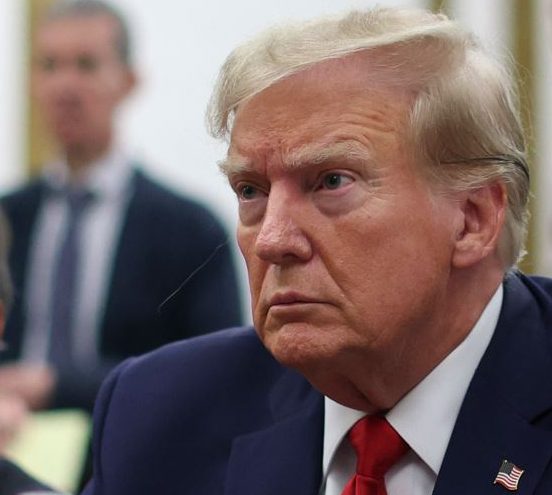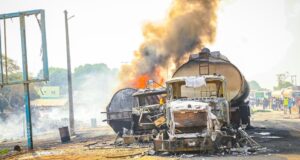When listeners in northern Nigeria tuned into Voice of America last month, they were met with music instead of their regular broadcasts — a signal, historically, that telecom offices or even the government had been seized by soldiers.
“Was there a coup in the US?” Babangida Jibrin, a VOA journalist, recalled a concerned listener asking, as he and his colleagues received an endless stream of calls after the US-funded station suddenly went off air on Friday.
The shutdown of VOA by President Donald Trump’s administration has had a significant impact in northern Nigeria, where a now-closed Hausa-language service, which Jibrin worked for, once reached tens of millions of people in Africa’s most populous country.
The station’s broadcasts to Hausa speakers in rural Ghana, Cameroon, and Niger — where print media is scarce and internet access limited — were vital for people who could not speak the official languages of English or French.
“People are now cut off from news, especially international news,” said Moussa Jaharou from southern Niger, one of many VOA Hausa listeners in poor regions vulnerable to conflict and jihadist violence, now further isolated.
Voice of America was founded during World War II to counter Nazi propaganda and expanded during the Cold War due to tensions between the US and communist countries.
Although VOA has been funded by the US government, it was considered a reliable and professional news source in Nigeria — an important alternative when other outlets were sometimes too close to government or business interests.
However, Trump’s first term saw accusations that he was politicizing the outlet.
During his second term, he slashed its funding as part of his administration’s larger budget cuts.
While the closure of the Hausa-language service is not the end for media in the region, it does represent a significant blow to an already fragile industry, particularly given the station’s extensive network of local stringers.
Besides daily news, VOA’s health programming — covering topics like HIV and malaria, which is critical as the rainy season begins — was also abruptly canceled.
“It’s really, really a shame,” said Sadibou Marong, West Africa chief for Reporters Without Borders, pointing out that VOA’s reports on areas affected by armed groups in Nigeria and Niger, even when military forces pressured journalists to report favorably, were an important resource.
The closure of VOA, which is currently being contested in a US court, comes at a time when Radio France Internationale (RFI), including its Hausa service, has been banned by military authorities in Niger.
Britain’s BBC also recently faced a three-month suspension in the country.
The establishment of radio stations in Kano city in 1944 helped create a strong radio culture in northern Nigeria, where English literacy was low during British colonial rule.
VOA’s service, which began in 1979, was able to reach millions in rural areas that were otherwise hard to access, thanks to its syndication across local stations.
Muhammad Mukhtar, a Nigerian listener, who had developed a routine of waking up to the 6:00 am broadcast with his father, said he wasn’t concerned about losing daily news — as there are still many local stations.
However, he expressed worry about the loss of VOA’s more in-depth programming, such as health topics, discussions on Islam in America, and the Nigerian political debate show “Hot Seat.”
“I still have not come to terms with this shocking reality,” he said.
The service was also known for its “solutions-based journalism,” such as a report about a young inventor in Kaduna who used drones to monitor crop diseases, said Alhassan Bala, another laid-off reporter.
On other occasions, VOA’s stories led to government investigations, such as one into the dangerous levels of heavy metal exposure in children from mining operations in Zamfara state.
For the journalists, the shutdown of the service is deeply painful.
Jibrin, recalling the harassment he endured during the 1990s under the junta leader Sani Abacha, became emotional as he reflected, “There are places we used to go where they would address us as CIA agents.”
“So now who will have the last laugh?” he wondered, unsure of how he would now provide for his family.
Bala learned about the shutdown while working on a story for his Hausa-language fact-checking website, Alkalanci.
“I just said, ‘Oh my God,’” he told AFP. “This is bad.”

















